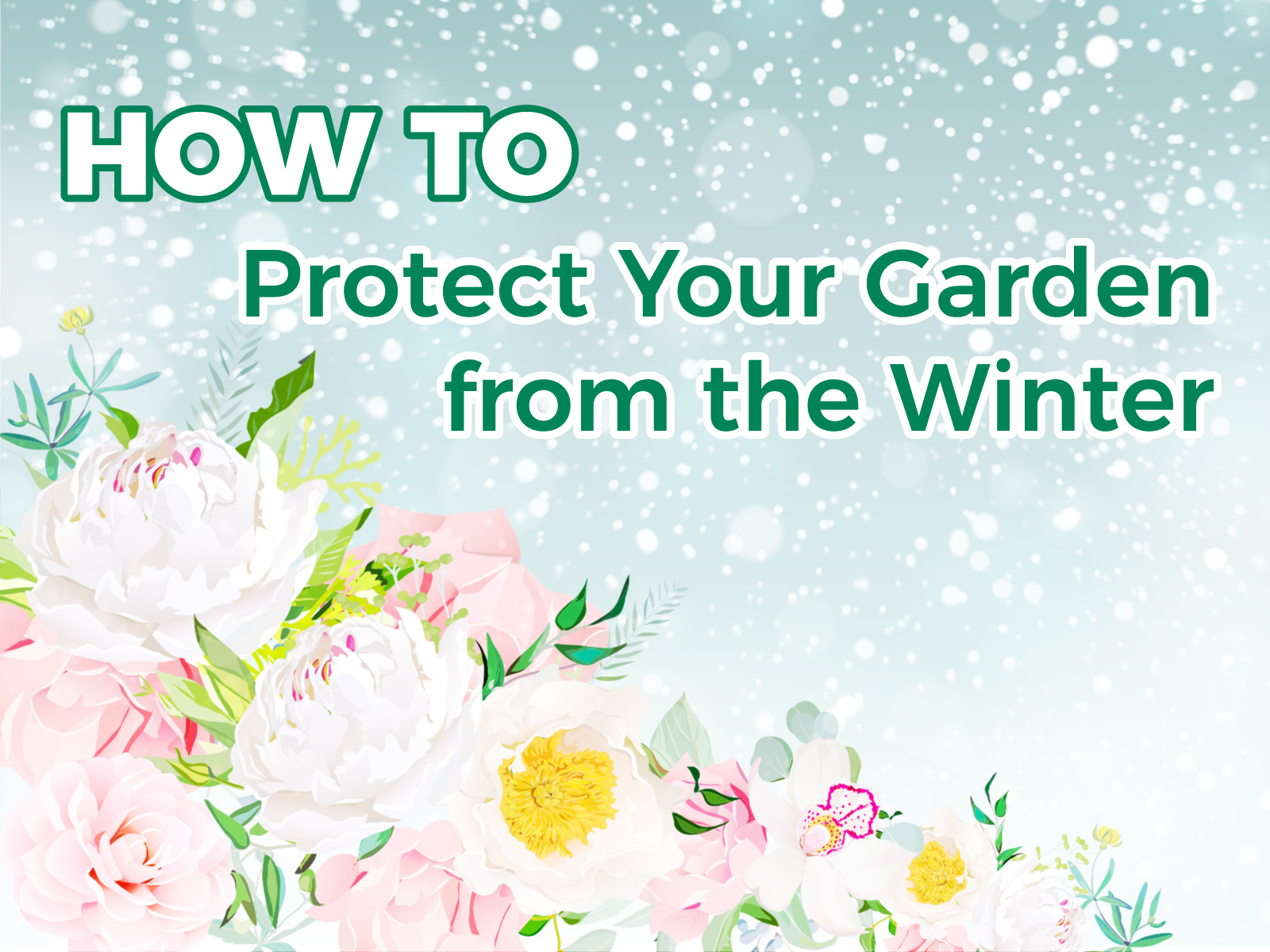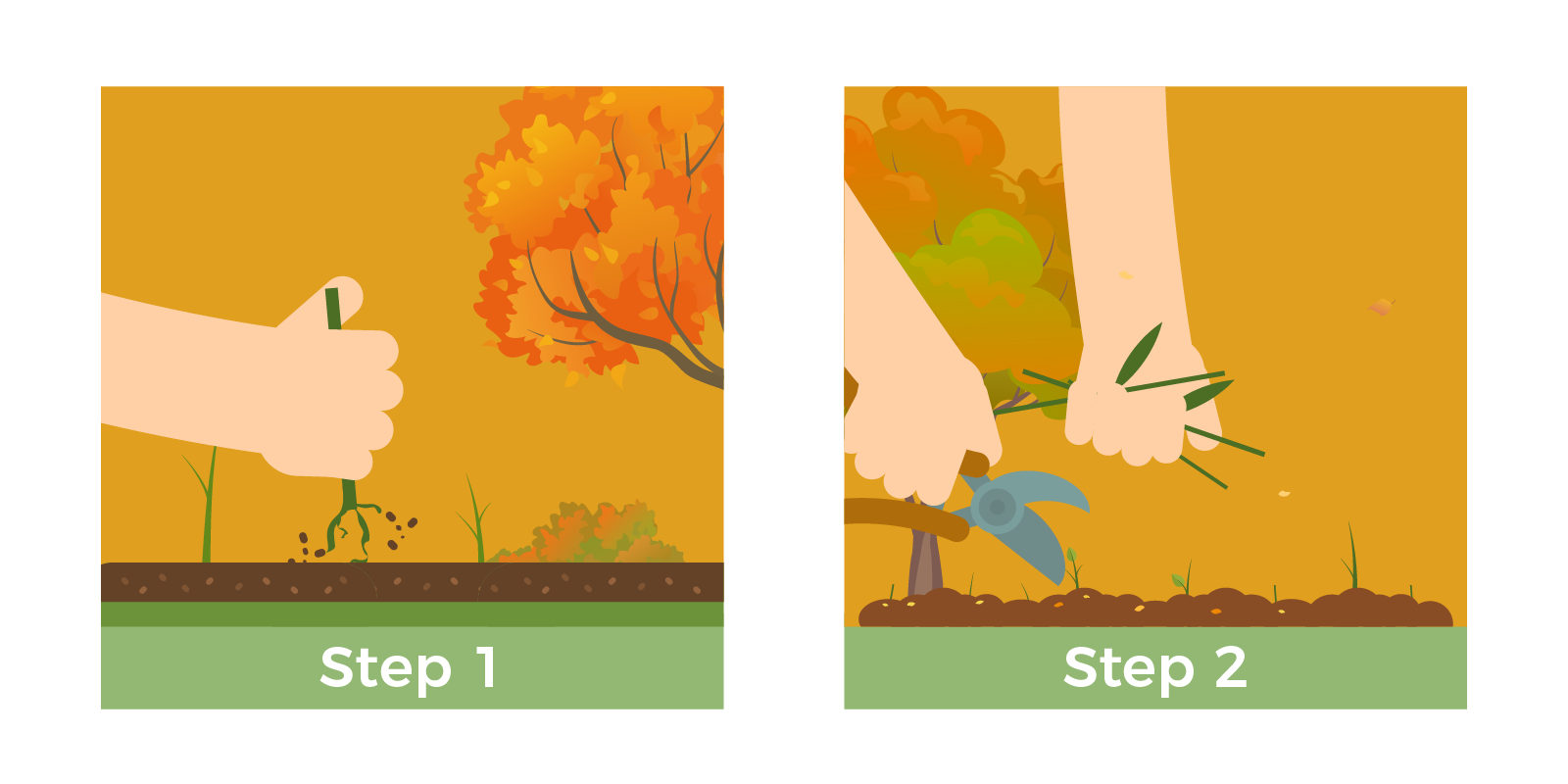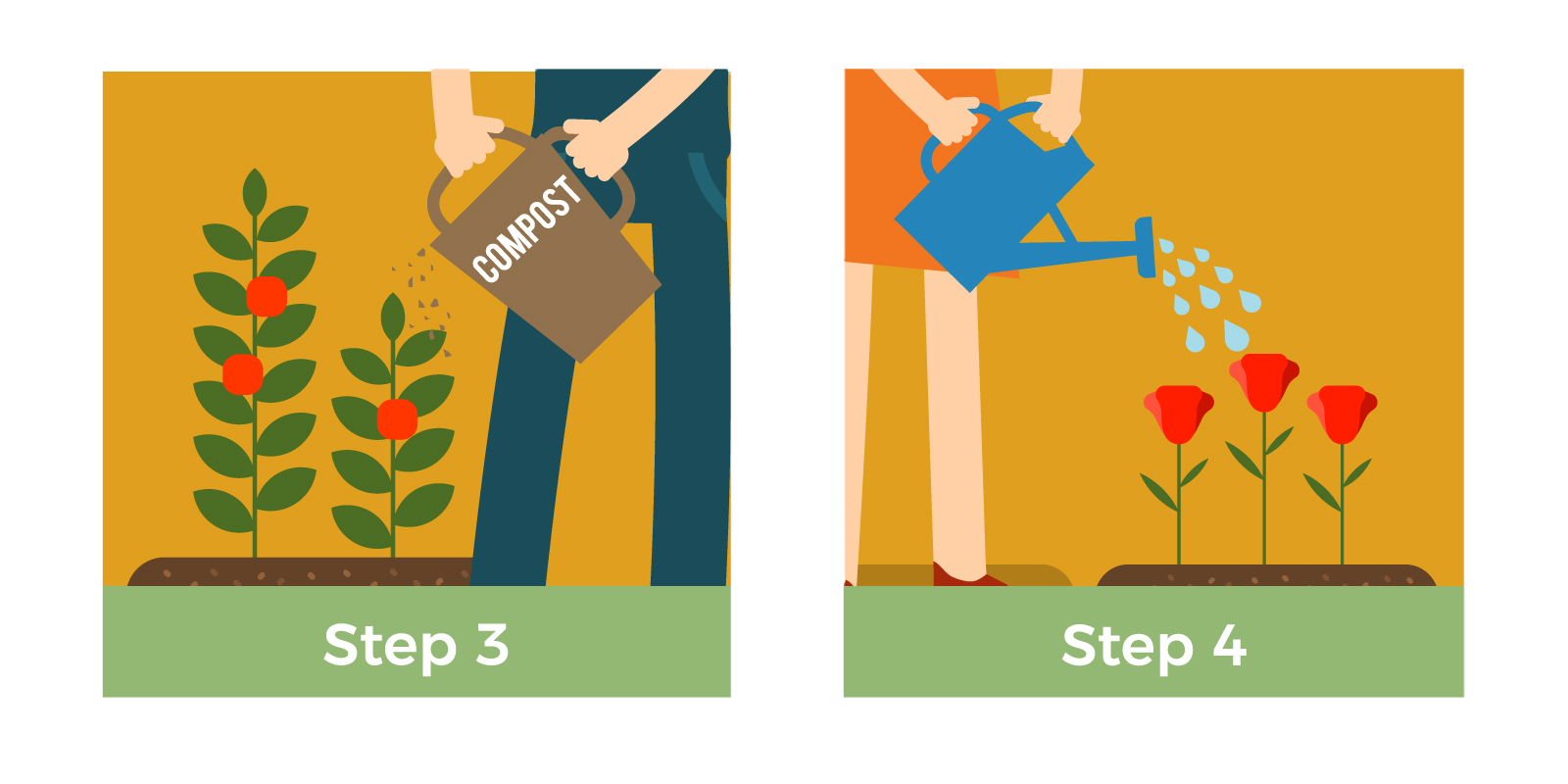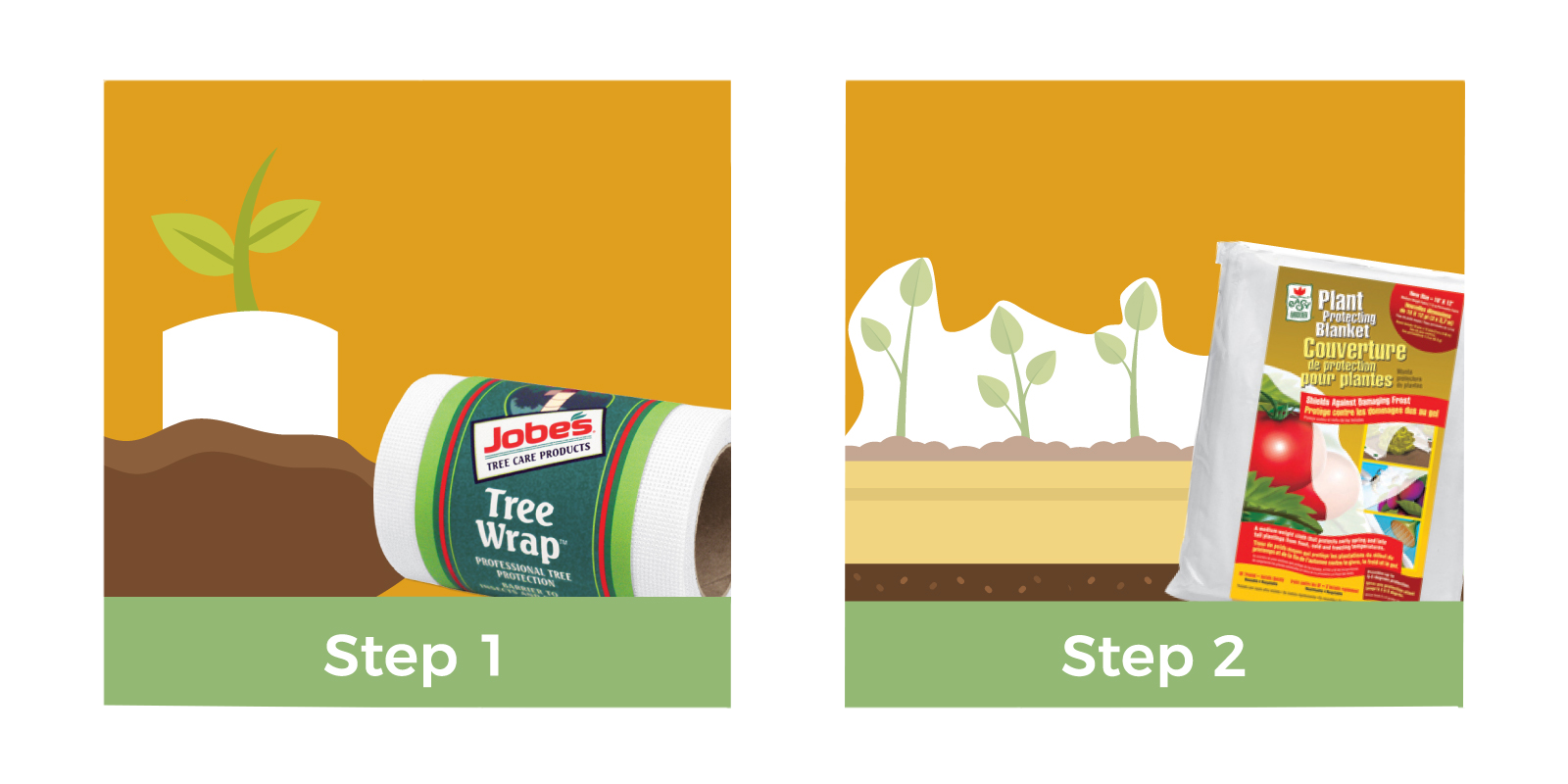
As the active growing season wraps up, you don’t want to forget about your garden. With cold weather on the horizon, it’s important to protect your plants from the elements and prepare for a successful spring. It’s frustrating to find that your plants didn’t make it through a harsh winter – and even more frustrating when you realize it could have been prevented. Use this how-to guide to keep your garden safe from frost, freezing temperatures, and more.
Getting Prepped
Preparing for the cold means doing an inventory of your plants. Remove anything that won’t survive through the winter, as well as anything that would interfere with your garden’s overall health.

- Remove Debris: At the end of the growing season, your garden may become overrun with dead plants, fallen leaves, and unwanted weeds. Clear it all up before cold weather hits to prevent disease from spreading and keep pests away. Plus, getting rid of debris keeps your garden tidy.
- Remove and Trim At-Risk Plants: As the winter approaches, you’ll want to cut back your perennial stems to soil level. This assures they are protected from the elements and prepared to sprout the next spring. For annuals, seasonal vegetables, and other plants that won’t last in the cold, remove them completely – this prevents them from withering away and inviting disease and pests. If you have bushes, cut them back about midway through the winter season when they become dormant.
Fertilizing, Composting, and More
Maintaining the plants in your garden is one thing, but you don’t want to forget about the soil either. Treat your soil well during the winter, and you’ll have a green garden when the following growing season arrives. Soil that is not properly prepared will not be able to provide the nutrients new and emerging plants need to grow.
- Pick Out Fertilizer Spikes: Fertilizing before winter keeps your garden in optimal growing condition for the following spring. Before your first frost, be sure to add fertilizer like you would in the spring. The easiest way to do this is with fertilizer spikes. Jobe’s sells organic spikes for a variety of plant types, including roses, trees, and shrubs. Pick out spikes for the plants remaining in your garden over winter.
- Place Fertilizer Stakes Near Plants: Once you purchase the fertilizer spikes, you’ll want to place them in your garden accordingly. Follow the directions on the package to find out how many to place, as well as how deep and how far away from the plants they should be. For most, you’ll want to place them around the plant at a two-foot radius. Make sure the soil is moist before inserting them into the soil. For larger spikes, you will need to hammer them in – be sure to moisten the soil first if the ground is hard.
- Add Compost and Mulch: Fertilizer helps enrich your soil while compost and mulch nourish and protect. Place compost first to provide your plants with needed nutrients, and then add mulch on top to prevent snow and frost from seeping in. Mulch also keeps the sun from thawing frozen ground, which preserves the soil underneath and keeps it safe from disease and pests.
- Water Plants: Even though remaining plants are dormant during the winter, it’s still important that they receive the water they – specifically, their roots – need to stay alive. Without precipitative weather, you’ll need to get out and water the plants to keep the soil moist. Do so a few times per month and only when the ground is at least 40 degrees Fahrenheit.
Wrapping
As the cold season and winter holidays approach, presents aren’t the only thing you’ll need to wrap. Consider using garden wraps to defend plants against potential hazards like wind, snow, and small animals.
- Protect Tree Bark: If you have young trees in your garden, it’s important to keep them protected as they continue to grow. This means protecting them through harsh winters – and wrapping their bark helps. Get Jobe’s Treewrap™ to keep them safe from unruly weather. In addition to protection from the usual threats, wrap also prevents a phenomenon called “sunscald.” This occurs when the sun warms trees by day, then ice freezes it by night, resulting in cracks.
- Protect Fragile Plants: Many small garden plants are highly vulnerable to winter conditions, and they’re often too frail to survive the cold season without cover. To protect them, use Jobe’s burlap, or a Plant Protecting Blanket. If you prefer to use plastic, remove it during the day to prevent it from heating up and inducing a premature bud.
Get Strong Garden Defense This Winter with Jobe’s
Even when summer is over, the health and well-being of your garden shouldn’t take a backseat. With the previous tips, you will be able to preserve your plants throughout the bitter cold months; their survival is an important step toward a green garden in the spring growing season. Take care of your garden this winter, and think Jobe’s Organics® for all your garden fertilizer and plant protection needs.


